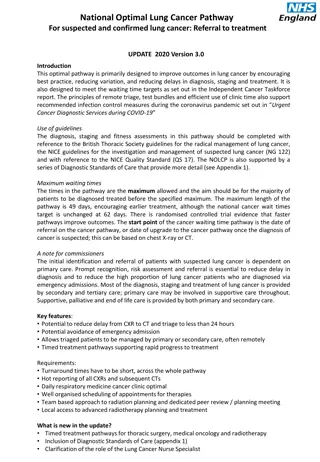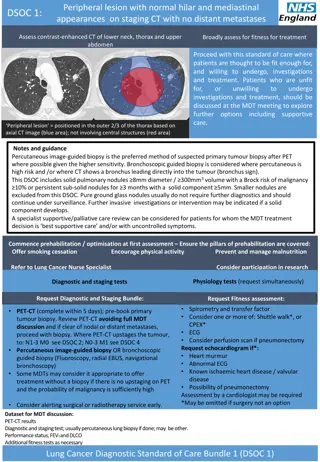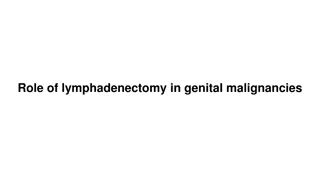Updates on TNM-8 Staging for Urological Cancers: Insights by John Mitchard
An update by Consultant Histopathologist John Mitchard on TNM-8 staging for urological cancers, highlighting changes in RCC definitions and grading, along with minor adjustments in bladder staging. Details include revised pT3 criteria for kidney tumors, improvements in bladder M1 and T2 classifications, and a shift towards WHO/ISUP grading for RCC. The presentation emphasizes crucial differences between UICC and AJCC classifications and addresses errors, omissions, and clarifications in the updated guidelines.
Download Presentation

Please find below an Image/Link to download the presentation.
The content on the website is provided AS IS for your information and personal use only. It may not be sold, licensed, or shared on other websites without obtaining consent from the author.If you encounter any issues during the download, it is possible that the publisher has removed the file from their server.
You are allowed to download the files provided on this website for personal or commercial use, subject to the condition that they are used lawfully. All files are the property of their respective owners.
The content on the website is provided AS IS for your information and personal use only. It may not be sold, licensed, or shared on other websites without obtaining consent from the author.
E N D
Presentation Transcript
TNM 8 for urological cancers An update John Mitchard Consultant Histopathologist Royal United Hospital, Bath 5thJuly 2018
UICC vs. AJCC Broadly similar with some important differences.
Errors, omissions and clarifications Spreadsheets issued First and second print run - 629 Third print run - 58 Nearly 200 regarded as critical Many of these H&N No significant urology errors 326 pages of rewritten text issued as PDF file. Lesser changes in UICC TNM8
Kidney (RCC) Main change is to definition of pT3 tumours (building on findings of ISUP 2014 consensus) T3 Tumour extends into major veins or perinephric tissues but not into the ipsilateral adrenal gland and not beyond Gerota fascia T3a - Tumour extends into the renal vein or its segmental branches, or tumour invades the pelvicalyceal system or tumour invades perirenal and/or renal sinus fat (peripelvic) fat but not beyond Gerota fascia T3b - Tumour extends into vena cava below diaphragm T3c - Tumour extends into vena cava above the diaphragm or invades the wall of the vena cava
Kidney RCC grading Furhman grade (1982) widely used but suffers from reproducibility and outcome prediction. WHO/ISUP grade based on nucleolar prominence: 1. Tumour cell nucleoli invisible or small and basophilic at x400 magnification Tumour cell nucleoli conspicuous at x400 magnification but inconspicuous at x100 magnification Tumour cell nucleoli eosinophilic and clearly visible at x100 magnification Tumours showing extreme nuclear pleomorphism and/or containing tumour giant cells and/or the presence of any proportion of tumour showing sarcomatoid and/or rhabdoid dedifferentiation 2. 3. 4.
Bladder - staging Minor changes M1 split into: M1a - non-regional lymph node (beyond common iliacs) M1b non-lymph node distant metastasis T2 clarity improved: T2a -Tumour invades superficial muscularis propria (inner half) T2b - Tumour invades deep muscularis propria (outer half)
Bladder grading AJCC specify the use of low- and high-grade classification for urothelial carcinomas. This does away with the WHO 1974 three tier system, which in turn gives a four tier system by subdividing Grade 2 tumours. Not very reproducible. Recent debate about this at BAUP (Amin vs. Varma)
Renal pelvis and ureter The N3 category of a metastasis in a single lymph node larger than 5 cm in greatest dimension has been collapsed into the N2 category.
Urethra Previously Tis pu Carcinoma in situ, involvement of prostatic urethra Tis pd Carcinoma in situ, involvement of prostatic ducts Now: UICC - Tis pu AJCC Tis i.e. Carcinoma in situ, involving the prostatic urethra, periurethral or prostatic ducts without stromal invasion
Penis Tis Carcinoma in situ (Penile intraepithelial neoplasia PeIN) TaNoninvasive localised squamous cell carcinoma T1 Tumour invades subepithelial connective tissue T1a Tumour invades subepithelial connective tissue without lymphovascular invasion or perineural invasion and is not poorly differentiated T1b Tumour invades subepithelial connective tissue with lymphovascular invasion or perineural invasion or is poorly differentiated
Penis cont.. T2 definition now includes c. spongiosum invasion T3 definition now includes c. cavernosum invasion pN1 metastasis in 1 or 2 inguinal LNs pN2 metastasis in >2 inguinal LNs pN3 pelvic LNs or extranodal spread
Prostate In AJCC TNM 8 the pT2 category is no longer subdivided into pT2a,b and c. In UICC TNM 8 a pN1mi category is defined for micrometastases (nodal tumour deposits no larger than 2mm). AJCC uses Grade Groups 1-5 and PSA in prognostic grade groups
Testis Nomenclature of non-invasive disease (pTis) UICC: intratubular germ cell neoplasia AJCC: germ-cell neoplasia in-situ (favoured) AJCC Subdivision of pT1 seminomas according to 3cm cut-off Epididymal invasion pT2 not pT1 Hilar soft tissue invasion is considered pT2 Discontinuous involvement of the spermatic cord by lymphovascular invasion is considered M1
Points to consider Urothelial carcinoma: two- vs. three tier grading Prostate: pT2 subclassification Prostate: micrometastases























